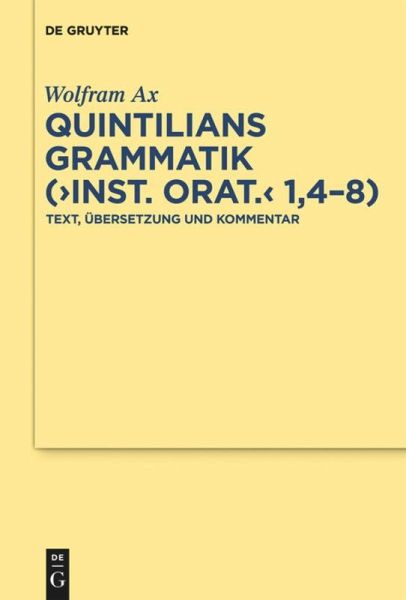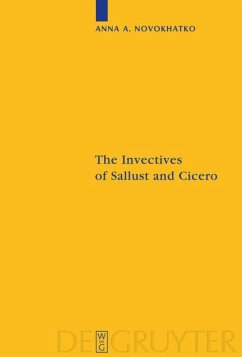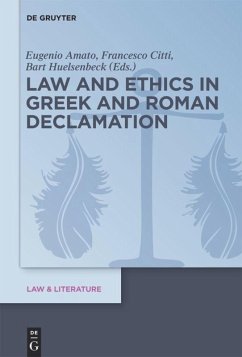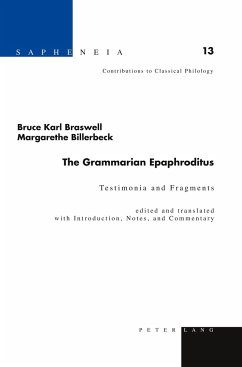
Quintilians Grammatik ("Inst. orat." 1,4-8)
Text, Übersetzung und Kommentar

PAYBACK Punkte
0 °P sammeln!
The outline of grammar in the work of Quintilianâ??s The Oratorâ??s Education (1,4-8) is the earliest and at the same time most reliable presentation of the Roman ars grammatica. This new edition seeks to provide a completely new access to this document of the history of linguistics which is written in such a subtle and elegant style. The edition contains a revised Latin text, a new translation by the editor and an extensive commentary and aims to assign a new position in the history of Roman grammar to this work.
Quintilians Abriss der (téchne) grammaticé in seiner Institutio oratoria 1,4-8 um 95 n.Chr. ist die zeitlich früheste und zugleich inhaltlich und strukturell zuverlässigste Darstellung unter den erhaltenen Texten der römischen ars grammatica. Die neue Ausgabe versucht, dieses ebenso schwierige wie elegant geschriebene Dokument der Sprachwissenschaftsgeschichte durch einen revidierten lateinischen Text, eine eigene deutsche Übersetzung und einen ausführlichen Kommentar völlig neu zu erschließen. Die Ergebnisse der Kommentierung machen es darüber hinaus möglich, Quintilians Bericht einen bisher so nicht gesehenen Stellenwert in der Entwicklungsgeschichte der römischen Grammatik zuzuweisen: Er repräsentiert kein noch unfertiges Frühstadium der römischen Grammatik, die sich erst in der Spätantike zu den großen systematischen Entwürfen (Charisius, Diomedes, Donat, Priscian) ausdifferenziert und hochentwickelt ist. Vielmehr spiegelt sein Bericht eine in den Grundzügen und in vielenDetails bereits fertige Disziplin, die sich mit großen Autorennamen der frühen Kaiserzeit wie Verrius Flaccus, Remmius Palaemon und Plinius d.Ä. verbinden lässt.













